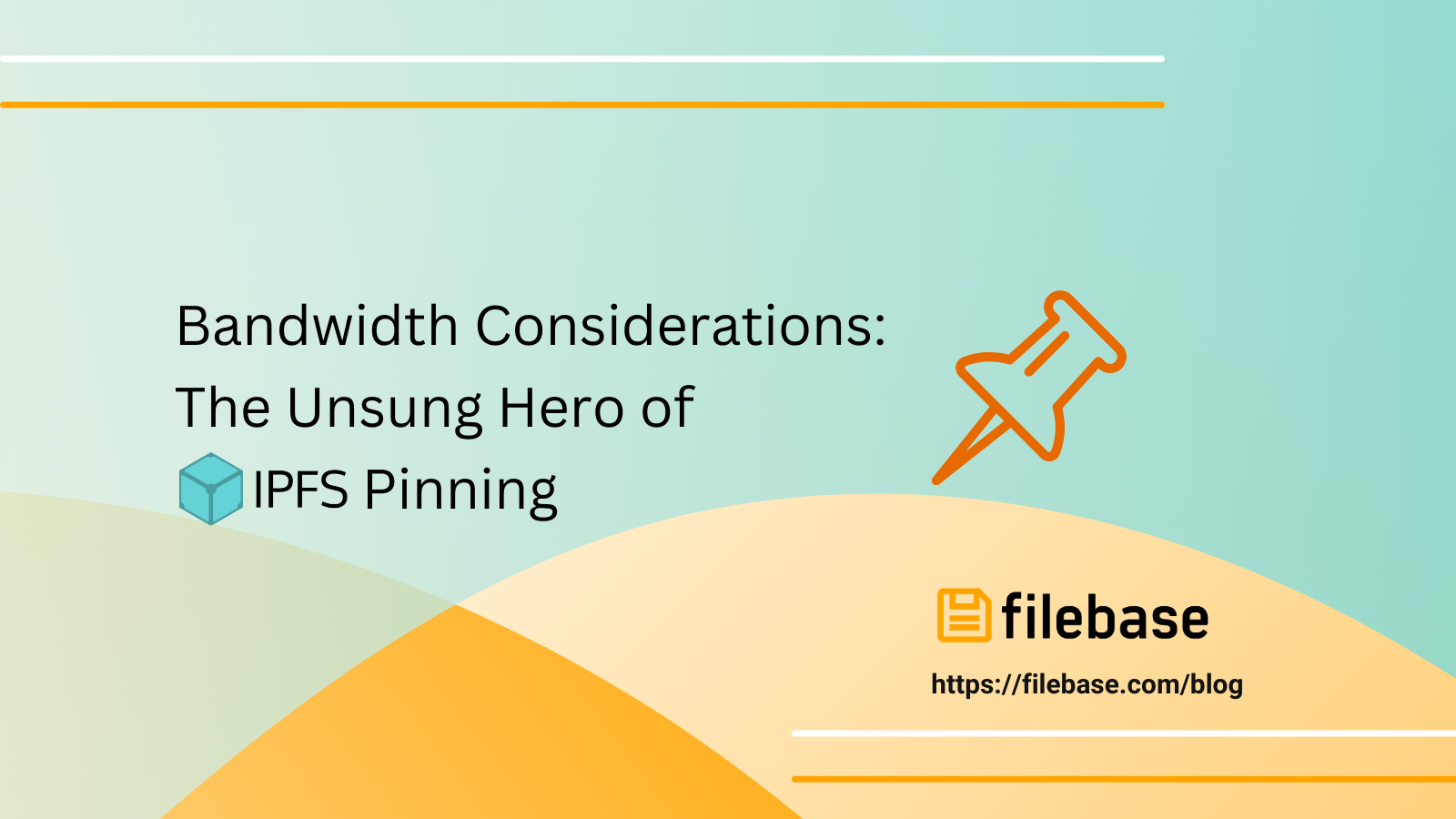Bandwidth Considerations: The Unsung Hero of IPFS Pinning

IPFS (InterPlanetary File System) is a game-changer, offering secure and efficient data storage and retrieval. While its innovative content addressing and decentralized storage have gained significant attention, one critical aspect often overlooked is bandwidth. This article explores the impact of bandwidth on IPFS pinning performance, its effects on pinning processes, and how Filebase strategically tackles bandwidth-related challenges.
IPFS Pinning
IPFS pinning involves persistently storing content on the IPFS network, ensuring data availability even when the original source is offline. This process creates data copies distributed across multiple network nodes, enhancing fault tolerance and reducing data loss risk. When users request pinned content, IPFS locates the nearest copy, minimizing latency and improving performance.

Balancing bandwidth and storage resources is crucial for optimal IPFS performance. More pinned content requires more bandwidth and storage.
Impact of Bandwidth on IPFS Pinning Performance
Bandwidth is vital for any distributed network, including IPFS. The available bandwidth significantly impacts content pinning performance on IPFS. High bandwidth throughput allows faster content retrieval and announcement, ensuring quicker access to pinned content. Conversely, limited bandwidth can lead to delays and slower response times.
Network speed, latency, and congestion significantly influence bandwidth's impact on IPFS pinning performance. High-speed, low-latency networks with minimal congestion enable faster data transfer, maximizing IPFS pinning efficiency. However, slow networks with high latency and congestion can impede the pinning process. The geographical distribution of IPFS nodes and the type of content being pinned also play significant roles in bandwidth utilization and performance.
Addressing Bandwidth-Related Challenges with Filebase
Filebase offers a solution that tackles these bandwidth-related challenges. Our approach, centered around a bespoke bare-metal edge CDN, optimizes IPFS content delivery and retrieval. This infrastructure guarantees faster access to pinned content, reduced latency, and heightened reliability.
Understanding the Impact of Bandwidth on the Cost of IPFS Pinning Services
Performance variability and reliability concerns stem from external pinning services' differing infrastructures and pricing models. Exceeding bandwidth limits with many other providers can result in reduced performance, highlighting the importance of transparent and predictable pricing for users.
Why Choose Filebase?
- Economical Bandwidth Pricing: Filebase offers cost-effective bandwidth charges at a uniform rate of $15/TB.
- Optimized Data Retrieval: Our edge CDN accelerates content delivery, enabling quick access to pinned data, especially crucial for dynamic content or real-time applications.
- Scalability: Filebase's infrastructure scales to increasing demand, providing consistent performance even under heavy load or during peak usage periods.
- Reliability: Our dedication to bare-metal resources ensures a dependable IPFS experience, free from common downtimes.
- Transparent and Predictable Pricing: Filebase offers clear, predictable pricing, allowing users to plan their projects without fear of unforeseen fees or bandwidth overage charges.
Understanding the role of bandwidth in IPFS pinning services is crucial for users seeking to enhance their storage solutions. At Filebase, we're committed to empowering our users with the necessary insights and tools to optimize their data storage efficiency, achieving a more efficient, reliable, and cost-effective experience
Reliable IPFS, Zero Headaches
Gateways, IPNS, and seamless pinning—all in one place. Try it now
Get Started For Free!